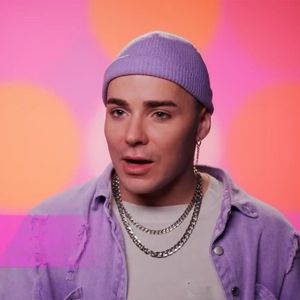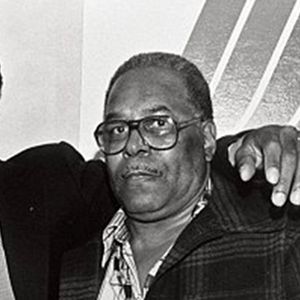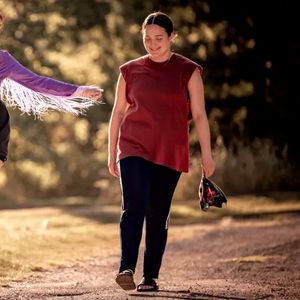CONTACTStaffCAREER OPPORTUNITIESADVERTISE WITH USPRIVACY POLICYPRIVACY PREFERENCESTERMS OF USELEGAL NOTICE
© 2024 Pride Publishing Inc.
All Rights reserved
All Rights reserved
By continuing to use our site, you agree to our Private Policy and Terms of Use.
Two law professors question whether a Boyd County, Ky., school board policy that will allow a students' gay rights group to meet after school complies with federal equal access laws. The Boyd County school board is expected to give final approval to the policy on August 18. The board also will ask a federal judge to lift an injunction that now allows the Boyd County High School Gay-Straight Alliance to meet at school before or after school hours or during the lunch period. The board contends the new policy treats the alliance the same as other noncurricular clubs, in compliance with the federal Equal Access Act. Sam Marcosson, a civil rights and constitutional law professor at the University of Louisville, says that depends on how it's enforced. "On the face of it, the [policy's] terms seem consistent with the Equal Access Act," Marcosson said. "But the big question in all of this is not what their policy says on its face but what is actually happening in the schools." Carolyn Bratt, a University of Kentucky law professor who works on gender issues, said she doubts the policy would prompt the judge--U.S. district judge David L. Bunning--to lift the injunction, because it grew out of a desire to stop the alliance from meeting. "No matter how they try to dress this up, it is motivated by and an attempt to exclude the Gay-Straight Alliance," Bratt said. "I don't think the court is going to forget where this all started. It started from an impermissible intention." The controversy heated up last October, when the high school's teacher-parent council voted to let the alliance meet at school. The action prompted a school boycott and opposition from local ministers and others. The school board then voted in December to ban all clubs from meeting at the high school and pledged to write a new policy on clubs. A month later the American Civil Liberties Union sued the district on behalf of the alliance, saying the high school violated the Equal Access Act by letting some noncurricular clubs meet despite the ban while not allowing the alliance to meet. The district denied the allegations, but Bunning issued a preliminary injunction in April saying the school had violated the Equal Access Act. He ordered the school to let the alliance meet and ordered the two sides to mediate their differences. The ACLU and the district couldn't come to an agreement, and the new policy was drafted. Winter Huff, a lawyer who helped write the policy, said the district plans to take the new policy to Bunning and ask him to lift the injunction. "It is the fulfillment of an issue that has existed since before this specific controversy, and that is to what extent are activities other than course work appropriate during the school day and to what extent does the school district need to be involved in that?" Huff said. "What the district is saying is, we want the school day to fulfill [academic] purposes; we want the school day to be spent on things that are instructional or curricular." Huff said that noncurricular clubs such as the alliance, the Bible Club, and the Key Club community service group would be allowed to meet at school on the same terms and that she believes the policy is in compliance with the Equal Access Act. The policy would allow noncurricular activities to take place at the school only after school hours--defined as the time buses begin loading, around 4 p.m.
Want more breaking equality news & trending entertainment stories?
Check out our NEW 24/7 streaming service: the Advocate Channel!
Download the Advocate Channel App for your mobile phone and your favorite streaming device!
From our Sponsors
Most Popular
Here Are Our 2024 Election Predictions. Will They Come True?
November 07 2023 1:46 PM
17 Celebs Who Are Out & Proud of Their Trans & Nonbinary Kids
November 30 2023 10:41 AM
Here Are the 15 Most LGBTQ-Friendly Cities in the U.S.
November 01 2023 5:09 PM
Which State Is the Queerest? These Are the States With the Most LGBTQ+ People
December 11 2023 10:00 AM
These 27 Senate Hearing Room Gay Sex Jokes Are Truly Exquisite
December 17 2023 3:33 PM
30 Steamy Photos of Folsom Street Fair 2023 Debauchery
October 15 2023 11:06 PM
10 Cheeky and Homoerotic Photos From Bob Mizer's Nude Films
November 18 2023 10:05 PM
42 Flaming Hot Photos From 2024's Australian Firefighters Calendar
November 10 2023 6:08 PM
These Are the 5 States With the Smallest Percentage of LGBTQ+ People
December 13 2023 9:15 AM
Here are the 15 gayest travel destinations in the world: report
March 26 2024 9:23 AM
Watch Now: Advocate Channel
Trending Stories & News
For more news and videos on advocatechannel.com, click here.
Trending Stories & News
For more news and videos on advocatechannel.com, click here.
Latest Stories
'Florida has a First Amendment problem' — judge rules trans teacher can use 'Ms.'
April 10 2024 6:33 PM
Here's why soccer fans are booing USWNT player Korbin Albert
April 10 2024 6:26 PM
Trans and nonbinary migrants file complaint over treatment at ICE detention facility
April 10 2024 6:00 PM
X likely profited from promoted post calling for LGBTQ+ death penalty
April 10 2024 3:11 PM
Giselle Byrd is taking center stage — and helping others do the same
April 10 2024 2:15 PM
How Beyoncé's Cowboy Carter advances equality
April 10 2024 1:39 PM
The North Face faces conservative boycott for sponsoring a queer summer camp (exclusive)
April 10 2024 8:26 AM
Trending stories
Most Recent
Recommended Stories for You



















































































